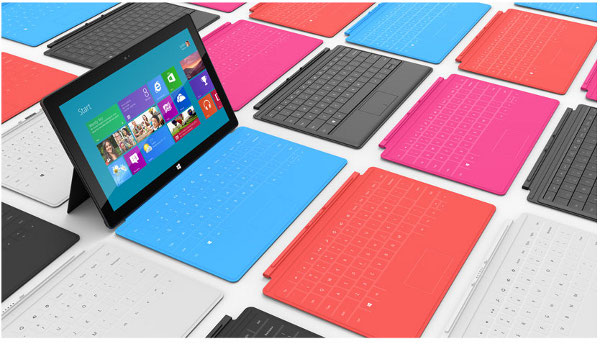5 reasons why Microsoft Surface will struggle

What? You're looking for iPhone 5 stories, since it launches today. I want to break with the pack, and write about something else. Shocking, isn't it? Windows tablets is worthy topic.
While you can expect many different Windows 8 or RT tablets next month, Microsoft's own Surface is the trailblazer. I've got some concerns, which apply to other tabs running the new OS -- five big barriers I think Surface will face at launch.
1. Performance. Surface is a decent post-PC device that comes in two flavors. You can buy the lesser-specced Windows RT version, or the more powerful Windows 8 Pro-powered device. Choose the latter, and you’ll be able to run much of the software you’d want to use on it. However, you can do the same with a cheaper laptop. Anyone who needs real power from a PC -- for intensive tasks like video editing or 3D graphics rendering -- is unlikely to want to compromise on a device that simply isn’t as good. If you’re someone who regularly pushes your PC to the limit, you're going to end up frustrated. As colleague Mihaita Bamburic observes, you can't do real work on a tablet.
2. Price. Shortly after Microsoft announced its two Windows 8 tablets, I wrote an article stating that Surface pricing dilemma is two opportunities waiting to be missed. In the piece I said pricing could go one of two ways -- very cheap, to make a big impact in the market, or moderately expensive, to make it clear to purchasers that it’s not simply another cut-price iPad alternative. Since that article was written, the market has been flooded with cheap Android tablets, so a $200 Surface running Windows RT would no longer be viewed as quite as special. But even so, if, as Steve Ballmer recently hinted, Surface (and other Windows 8 tablets) are going to be priced to compete with iPads - with RT at the lower end, naturally, Microsoft is going to have its work cut out to persuade people to spend that much, as our poll shows.
3. Perception. With Surface, Microsoft has created its very own special brand of confusion. When you go into the shop to buy a Surface tablet (and yes, let’s pretend people only ever buy electrical devices from shops), you’ll be faced with two choices: A tablet running Windows RT and a tablet running Windows 8 Pro. That's nice and baffling for the average consumer who probably won’t know what the hell Windows RT is. I expect the conversation will go something like this:
"Hello, Mr. Shopkeeper. I want to buy a Microsoft Surface tablet".
"Sure, no problem. This one running Windows RT, or this one running Windows 8 Pro?"
"What’s the difference?"
"Well, with RT you can’t run existing applications, you have to buy your programs through Microsoft’s store".
"Like the iPad, where you buy your apps from Apple?"
"Yes. But without the choice".
"But I can run my programs on Windows 8 Pro?"
"Yes. Although you’d be better off buying this laptop and an Android tablet, as it will work out cheaper".
"You’re trying to save me money? What kind of fictional shopkeeper are you?"
4. Design. Microsoft Surface looks quite nice. But the device is chunkier, heavier and lacks the aesthetics of the new iPad. It just doesn’t seem as appealing. It looks like someone has ripped the screen off a laptop and bolted a cheap plastic keyboard to the front.
5. Limited appeal. The Windows RT version of Surface is, in my opinion at least, going to fail badly. It’s essentially another tablet where you buy your apps through it, like the iPad, Google Nexus or Kindle Fire, but as our fictional shopkeeper pointed out, it lacks backward compatibility with existing PCs, and will have a very limited number of third-party apps at launch.
The Windows 8 Pro edition could find a home in the business world, but price will be a factor here. That users will be able to run their existing applications on it will be a big plus of course, although you can do that (sort of) with pretty much any tablet using a program such as GotoMyPC.